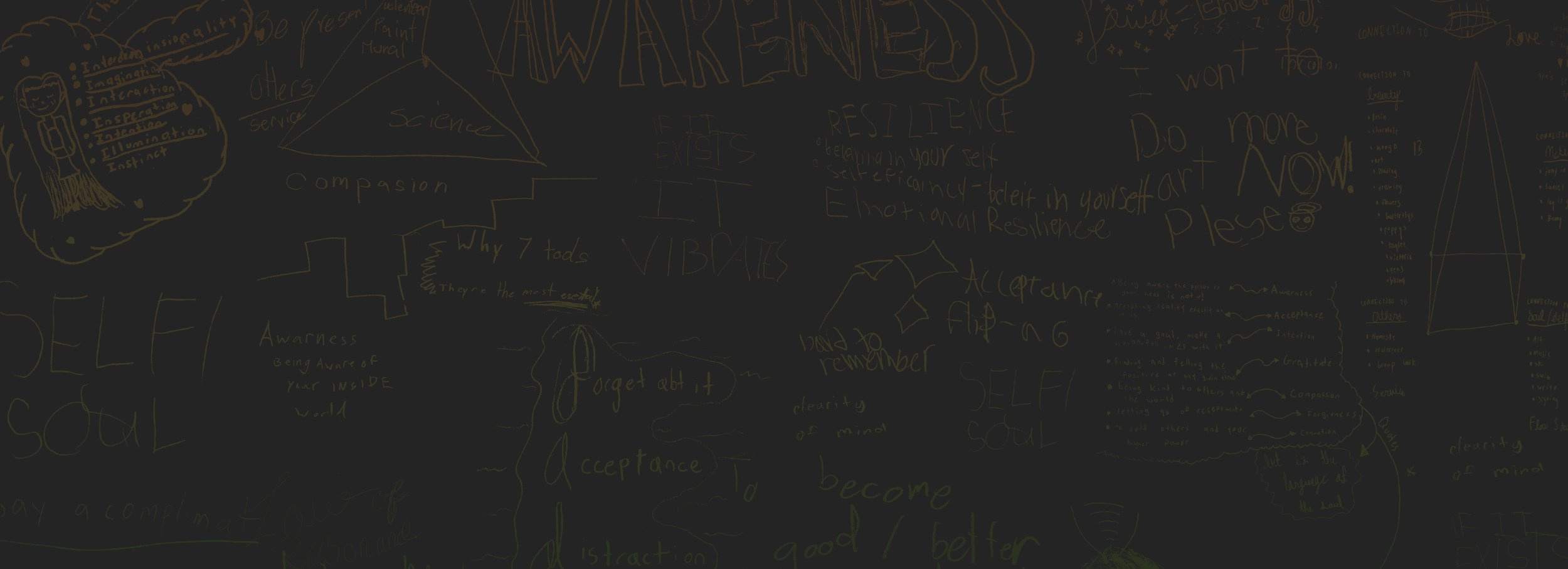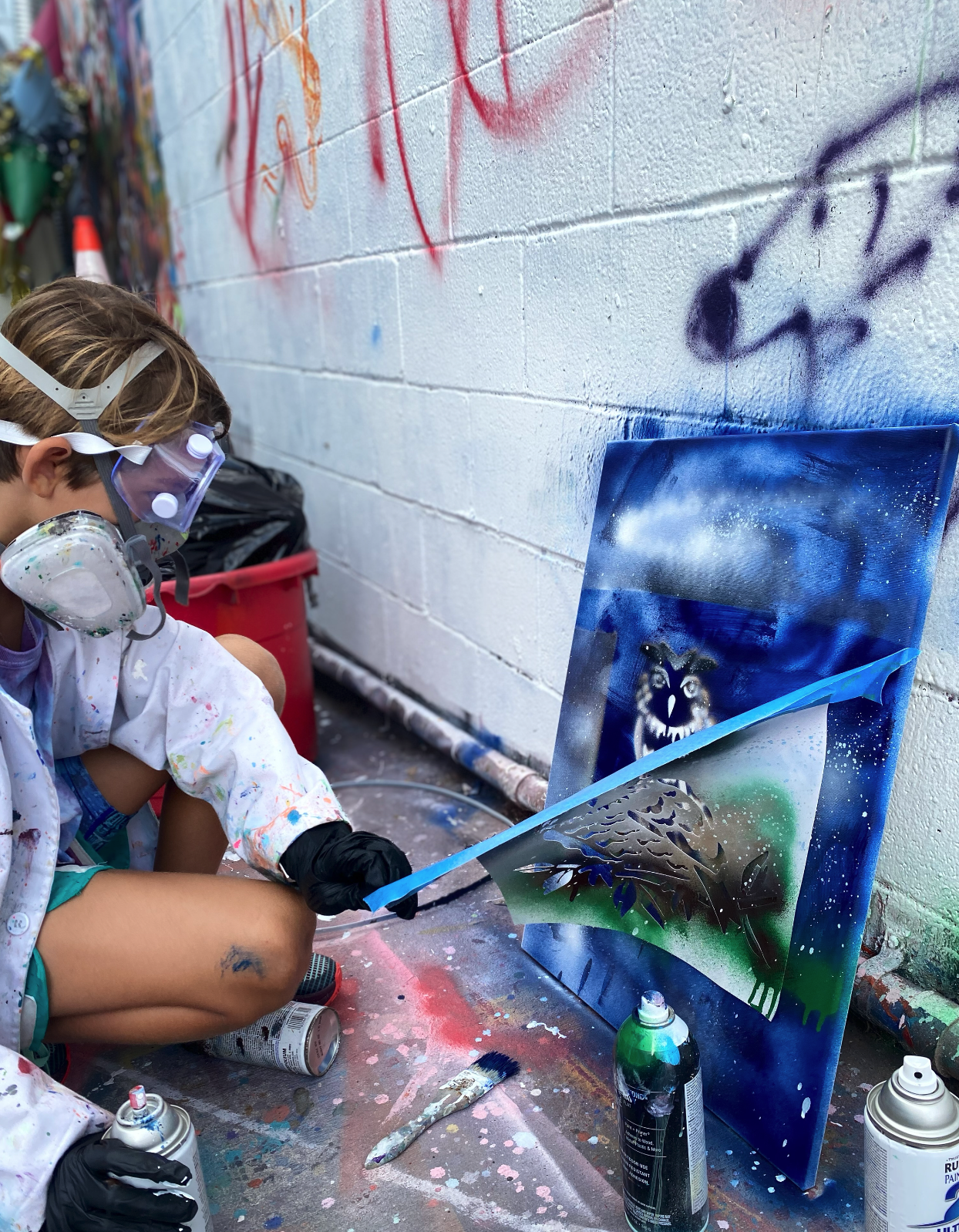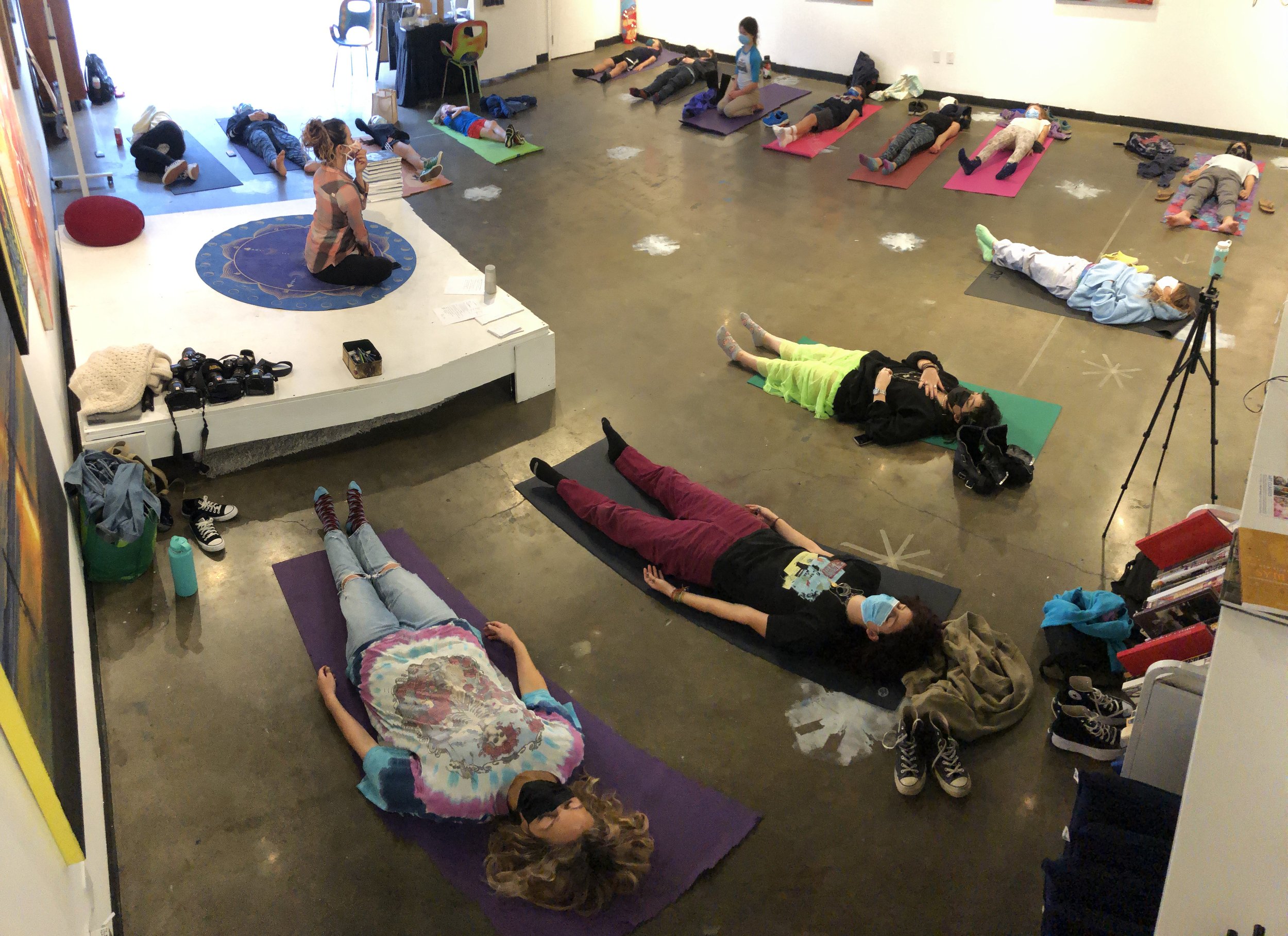
Our Vision is to Create a Better Reality.
Through our Creative Wisdom toolkit, we teach our students a fresh perspective on mindfulness - cultivating tools to meet life on life’s terms. We define success through our youth retaining and utilizing the tools in their daily life—resulting in students who are: spiritually aware, physically balanced, mentally sharp, and emotionally calm.















With these tools, our intention is to foster the development of 1 Million Conscious Youth…
What we teach…
THE 7 CREATIVE WISDOM TOOLS
AWARENESS
Through learning to closely observe our thoughts, we gain greater self-control and self-understanding.
Acceptance
By learning to accept reality as it is, we develop greater emotional resiliency through challenging times.
INTENTION
Students learn to develop clear goals, and how to achieve them through daily focus.
Gratitude
Going beyond “gratitude lists,” students will learn simple ways to practice and feel gratitude daily.
Compassion
Kindness and thoughtfulness are at the center of this tool, as well as empathy and patience.
FORGIVENESS
By learning to “let go” of past hurts, we are able to be more effective in the present.
CONNECTION
Students learn to deepen their connection to their fellow students, nature, beauty, service and their surroundings.
What People Are Saying
About the Creators
-

Rafael McMaster
IA FOUNDER, CREATIVE ALCHEMIST
The Founder of the Indivisible Arts movement, SB Artist Collective, and Resin - Rafael personally teaches the Creative Wisdom Tools. Nicknamed the “Youth Whisperer” by fellow parents and professionals - Rafael’s success in recovery and life experience overcoming personal struggles through the Tools, allows him to connect with youth in an authenticate way that resonates with impact.
-

Shelley Williams
MASTER OF MINDFUL MOVEMENT
Shelley Williams has been an active student, practitioner, and educator of Yoga, Pilates, and healing arts in the South Bay community for over 19 years. As a yogini, mother, dancer, artist, soul surfer, and perpetual student of life, Shelley loves to connect these different forms and expressions with a smile and laughter, with friendship and community. Shelley is the director of Yoga Mittra Teacher Training School, and is grateful for the opportunity to share healing arts locally and internationally, one-to-one and to large groups with people of all ages and walks of life.
About the Tools
Scanning ancient wisdoms to modern behavioral sciences, we feel this set of tools to be indispensable for thriving in the human experience, and managing life on life’s terms. From the Spiritual Toolkit of AA and other 12 step programs, to therapies ranging from Cognitive Behavioral Therapy (CBT) to Dialectical Behavior Therapy (DBT) to somatic to EMDR to art therapy - the program was developed with feedback from mental health professionals, community leaders, doctors, therapists, and spiritual teachers. The Tools (in order they are taught in the CWT program) are: Awareness, Acceptance, Intention, Gratitude, Compassion, Forgiveness, Connection/Service.
The WHY
The pandemic forever changed the trajectory and focus of Indivisible Arts, as the rising issues of mental health, drug addiction, screen addiction, and at-risk youth have laid before us a new landscape that will take an all-hands-on-deck approach. We are committed to deeply imparting these universal concepts as PRACTICAL DAILY TOOLS - as indespensable building blocks for living, coping, and thriving. We are dedicated to 100% retention and usage of these tools by our students - and that results in a noticeable shift in their behavior and consciousness after only a few sessions. The facts are irrefutable and are our inspiration to get this program to as many youth as we can in this lifetime…
The Current State of Mental Health in the U.S.
65 million people in US are diagnosed with a mental health condition - Project Healthy Minds (PHM)
More than 50% will be diagnosed with a mental illness or disorder at some point in their lifetime - CDC, 2021
60% of people suffering from mental health issues DON'T get the treatment they need - PHM
81% of workers say shame, stigma and lack of access, prevent them from seeking help - PHM
47,511 suicide deaths in 2019, one American every 11 minutes - CDC, 2020
Mental health costs businesses $1 trillion each year globally - PHM
Serious mental illness costs in the United States amount to $193.2 billion in lost earnings per year - CDC, 2021
Anxiety disorders affect 40 million adults in the U.S. (18.1% of the population) making it the most common mental illness - Anxiety & Depression Association of America
Mental Health and Gen Z (ages 7-23)
86% say mental health is as or more important than physical health - PHM
96% of them report dealing with anxiety today - PHM
46% report experiencing anxiety frequently or all the time - PHM
Suicide is the 2nd leading cause of death among people aged 15-34 - CDC, 2021
Mental Health and Addiction
Drug overdose deaths reached a record high of 93,331 in 2020 - CDC Wonder 2020, (NVSS)
The record-setting total is more than 20,000 deaths above the previous high in 2019 - CDC Wonder 2020, (NVSS)
Since 1999, overdose deaths have increased 450%.
65.8 million people were binge drinkers in the past month - National Survey on Drug Use and Health (NHUSD, 2019)
In 2012, more than 255 million opioid prescriptions were dispensed a rate of 81.3 prescriptions per 100 Americans (CDC, 2021)
Mental Health and Screen Addiction
We tap, swipe, and click on our phones 2,617 times per day (King Online University - 2019).
The average smartphone owner unlocks their phone 150 times a day (Internet Trends - 2019).
We use a gadget 10 hours and 39 minutes on average each day (Penn State - 2019).
87% of Millennials say their smartphone never leaves their side (Zogby - 2019).
60% of college students say they are addicted to their phones (Baylor - 2019).
Screen time spiked to over 13 hours/day during COVID-19 (Eyesafe Nielsen, 2020)
Children (11-14) spend about 9 hours a day in front of a screen using entertainment media (CDC, 2021)








